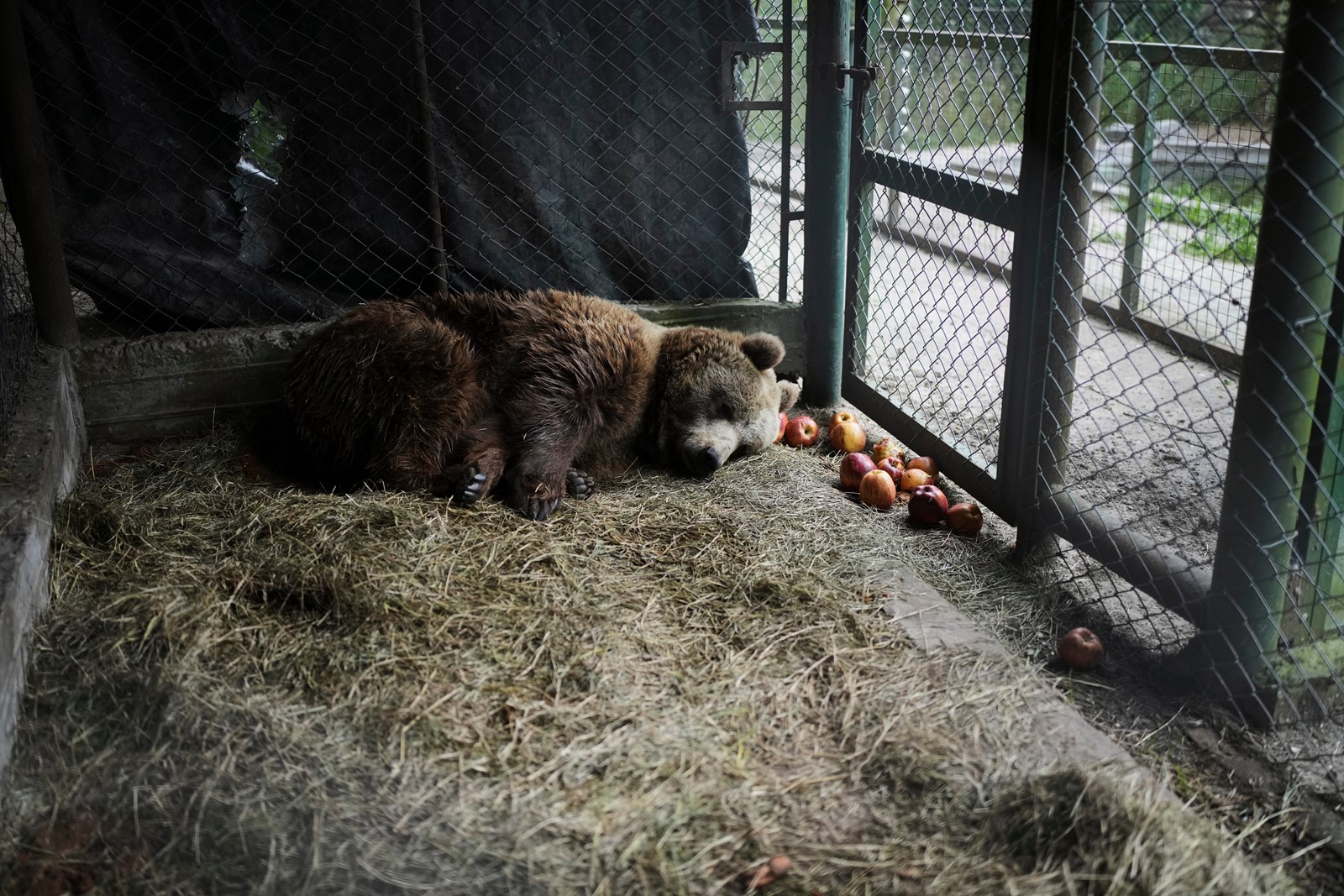
LUJAN, Argentina — Lions, tigers and bears that managed to survive in substandard conditions at a now-shuttered zoo on the outskirts of Buenos Aires, Argentina, paced weakly in their claustrophobic cages Thursday, waiting their turn to receive urgent veterinary care for the first time in years.
The 62 big cats and two brown bears were being evaluated and treated before their eventual transfer to vast wildlife sanctuaries abroad — among the most complex animal rescues undertaken in Argentina after the country’s recent arrangement with an international animal welfare organization.
Argentine authorities in 2020 shut down the Lujan Zoo — famous for letting visitors handle and pose for pictures with tigers and lions — over mounting safety concerns.
But the plight of the captive cats there only worsened. For the past five years, the animals were sustained by little more than a few loyal zookeepers who, despite having lost their jobs at Lujan, took it upon themselves to feed and care for the stranded lions and tigers left behind.
When Four Paws, an animal rights charity, first visited the zoo in 2023, caretakers counted 112 lions and tigers — already down from the 136 big cats housed in the zoo at the time of its closure.
Two years on, almost half of the animals have succumbed to illnesses from poor nutrition, wounds from fights with animals they’d never encounter in the wild, infections from lack of medical attention and organ failure from the stress of living in such cramped conditions.
After striking an agreement with Argentina’s government earlier this year, Four Paws took over responsibility for the surviving wild animals in Lujan last month.
The memorandum of understanding involved Argentina committing to end the sale and private ownership of exotic felines in the large South American country, where enforcement efforts often run aground across 23 provinces that have their own rules and regulations.
After evaluating each animal in the coming weeks, Four Paws will arrange for their transfer to more expansive, natural homes around the world.
Some Argentine zookeepers who spent decades feeding and caring for the big cats say they’re happy to see Four Paws improving the conditions. But there was also a sense of nostalgia for how things were.
“It used to be a very popular place ... I’ve seen people cry because they could touch a lion or feed a tiger with a bottle,” said Alberto Díaz, who spent 27 years working with the wild cats at the Lujan Zoo, overseeing hands-on experiences that catered to countless tourists.
“Time changes, laws change, and you have to adapt or get left behind.”


 PREVIOUS ARTICLE
PREVIOUS ARTICLE
